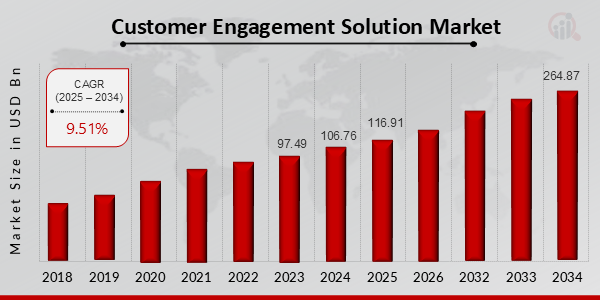
In today’s hyperconnected marketplace, the way companies engage with their customers has evolved dramatically. Businesses are no longer judged solely on the quality of their products or services, but on the overall experience they deliver. Customer Engagement Solutions (CES) have emerged as essential tools for organizations to build stronger, more meaningful relationships with their customers—turning one-time buyers into loyal brand advocates.
What Are Customer Engagement Solutions?
Customer Engagement Solutions are software platforms and tools that help businesses interact with customers across multiple touchpoints—digital, social, mobile, in-store, or via contact centers. These solutions are designed to personalize communication, improve responsiveness, foster trust, and increase customer satisfaction and retention.
They combine technologies such as:
Marketing automation
Omnichannel messaging
AI-powered chatbots
Customer analytics and feedback tools
Key Benefits
1. Improved Customer Retention
Engaged customers are more likely to remain loyal. CES helps track behavior, preferences, and feedback to proactively address needs and reduce churn.
2. Personalized Experiences
With AI and data analytics, businesses can deliver tailored content, product recommendations, and offers based on individual customer journeys.
3. Omnichannel Support
Customers expect consistent experiences across websites, mobile apps, social media, and offline channels. CES ensures seamless communication and service across all platforms.
4. Enhanced Customer Insights
By capturing and analyzing customer data, these solutions provide actionable insights into buying habits, pain points, and satisfaction levels.
5. Increased Revenue
Engaged customers spend more over time. Personalized engagement campaigns can boost upsell and cross-sell opportunities.
Core Features of Modern Customer Engagement Platforms
Live Chat and Chatbots: For instant, 24/7 support and product guidance.
Email and SMS Campaign Management: To deliver targeted offers and updates.
Social Media Integration: Real-time interaction and sentiment analysis.
Customer Feedback Tools: Surveys, NPS (Net Promoter Score), and review prompts.
AI and Predictive Analytics: To forecast behavior and recommend actions.
Loyalty Program Integration: Encouraging repeat purchases and advocacy.
Use Cases by Industry
Retail & E-commerce: Personalized marketing, order updates, and post-purchase follow-up.
Banking & Finance: Secure, real-time communication for inquiries and fraud alerts.
Healthcare: Appointment reminders, patient education, and feedback collection.
Telecom: Usage notifications, plan recommendations, and issue resolution.
Travel & Hospitality: Booking confirmations, itinerary management, and loyalty rewards.
Market Trends
The global customer engagement solutions market is projected to grow from $19.3 billion in 2023 to over $30 billion by 2030, reflecting increased adoption across sectors.
The rise of AI and machine learning is enhancing automation and personalization capabilities.
Growing focus on customer privacy and compliance (e.g., GDPR, CCPA) is influencing solution design.
Voice and conversational interfaces are becoming more mainstream, especially with the growth of smart devices.
Challenges
Integration with existing systems: Legacy infrastructure can hinder seamless data flow.
Data privacy concerns: Mishandling customer data can damage trust and invite penalties.
Complex customer journeys: Mapping and optimizing journeys across multiple channels requires constant refinement.
Measuring ROI: Quantifying the impact of engagement efforts can be difficult without clear KPIs.
The Future of Customer Engagement
The next generation of CES will likely be defined by:
Hyper-personalization through deeper data integration and real-time analytics.
Conversational commerce, where users shop via messaging platforms and voice assistants.
Self-service portals empowered by intelligent bots and knowledge bases.
Emotion AI to interpret tone and sentiment in customer interactions.
Customer engagement is no longer a nice-to-have—it’s a strategic necessity. In a digital-first economy, businesses that invest in robust customer engagement solutions gain a critical competitive edge. These tools help turn every interaction into an opportunity to build trust, drive loyalty, and grow revenue.
By aligning technology with empathy, businesses can create memorable experiences that not only meet but exceed customer expectations.

